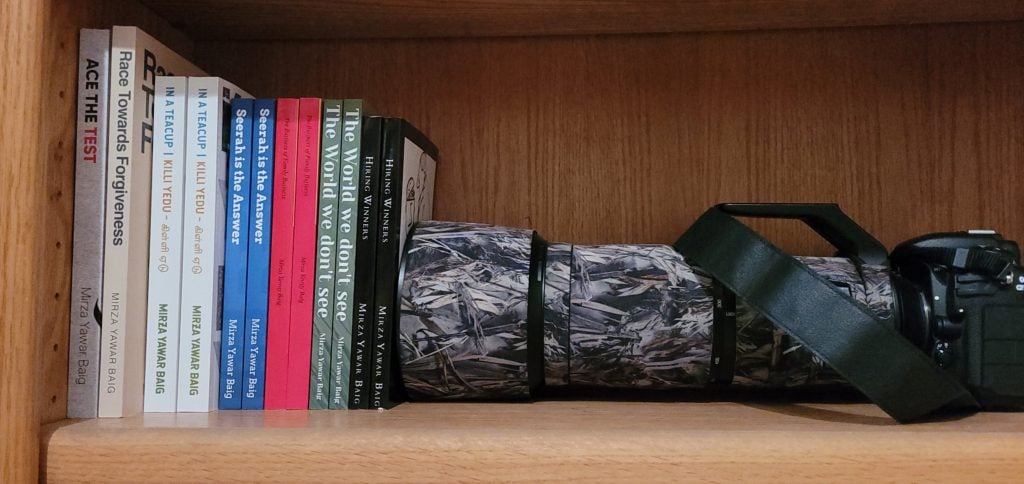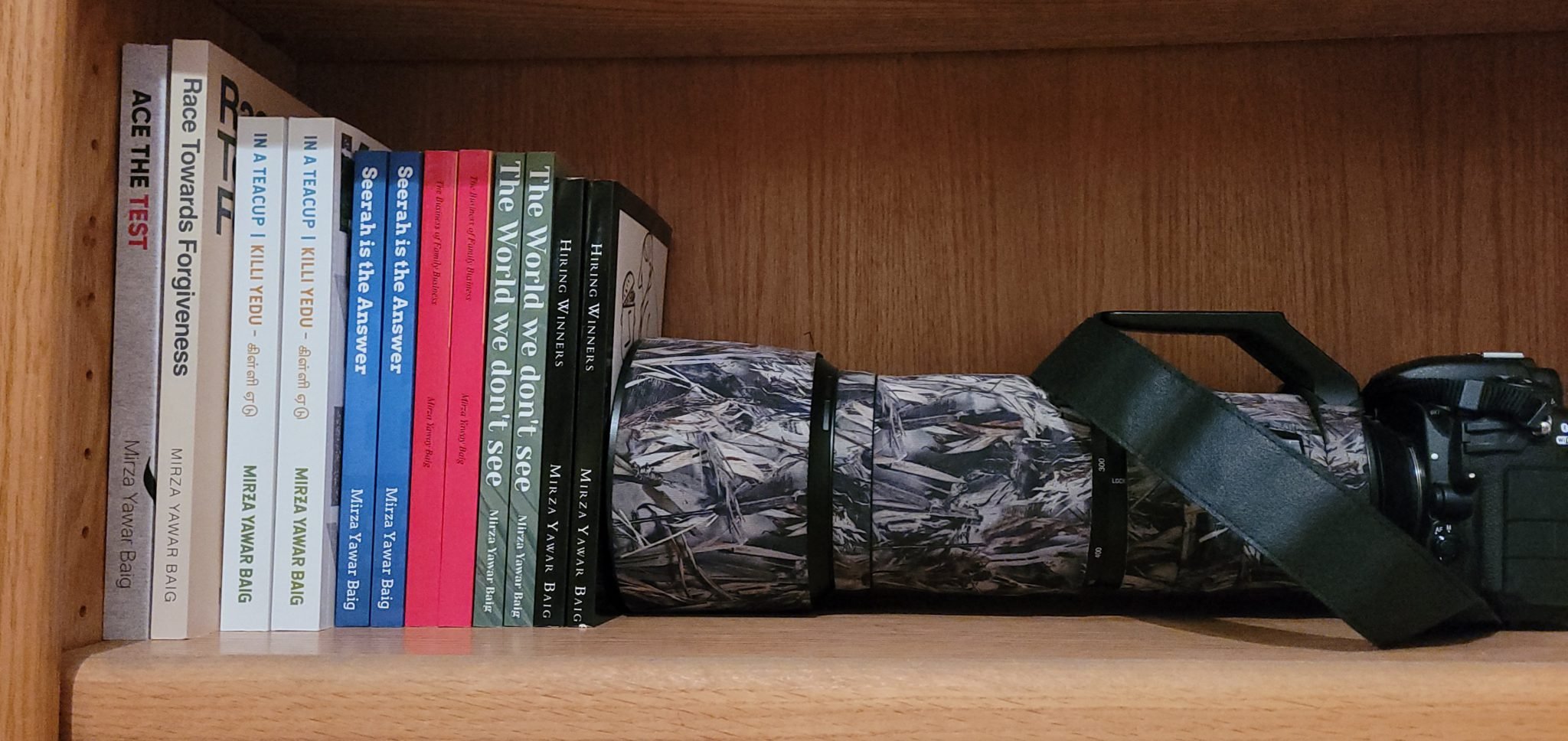
Someone asked Arthur Hailey (I think it was him) what the secret to his prolific writing was. He replied, “I wake up every morning and I write.”
Sixteen books later, someone asked me, ‘Tell me how to become a writer.’
I replied, ‘Write. Write badly but write now – right now.’
You become an author by writing. Not by talking about how badly you want to become an author. It is like drawing or singing – people hesitate to do it because they don’t think they are good at it. That explains the popularity of bathroom singing because you do it in what you think is isolation and so you are uninhibited. So tuneless though you may be, you still enjoy yourself. It is the same with writing. People worry about writing a best seller more than they worry about writing itself. Logically you must write first to give someone a chance to like or dislike your work. And with the popularity of self-publishing today and even more in the future, unless you want to make a living out of writing, likes and dislikes are not really material. So, stop reading this and start writing now – right now.
I have what I call my 7 – rules of writing which I have found to be very useful. I am sharing this with the hope that they are useful to all the potential authors who are waiting in the wings to be read. For the first requirement for being read is to write.
- Forget inspiration
The biggest block to writing is to wait for inspiration. That is not to say that you will never be inspired. You will be. There will be times when the words will flow faster than you can type. The right words will come. The sentences will form themselves and you will watch as if from the sidelines what is flowing from your fingers. But if you wait for that to happen you will wait a long, long time. So do what the famous author quoted above said, ‘I wake up every morning and I write.’ The big secret of writing is to write.
2. Good research
Depending on what you are writing about, research may be a very important aspect. What’s worse than making a fool of yourself? Making a fool of yourself in writing. The protection for that is research. Another thing; research and quoting the sources adds credibility to your argument. It shows that you are not the only bright spark in the world and that others before you also thought on the same lines and reached the same conclusions. And of course, research may result in your changing your line of thought or argument altogether depending on what you find out.
What is good research?
Search honestly: Look at all sources; not only the friendly ones.
Don’t read selectively: Actively look for contradictory data. If you don’t, others will.
Don’t use data to ‘prove’ your argument. Build the argument based on what the data reveals.
Data is supreme: Be willing to change your whole approach or conclusion if the data warrants it.
3. Create structure
Create an overall structure for the book. You can change this as you go along but a structure is a huge aid in writing. Structure also gives form to the story line and points you in the direction of information you need. Structure gives you ideas about the kind of research you need to do. Structure helps you to visualize the overall size and form the book will take. Structure helps you to design the story line so that it flows smoothly, keeping the interest of the reader alive all the way to the end.
4. Allocate time
Make a time table and allocate time for writing. During this time don’t do anything else. No emails, chores, phone calls, browsing or anything else. Just sit there and write. Discipline is the key. If you can make yourself sit at your computer every day and write, you are well on your way to becoming an author. The time of the day is not material. With a little reflection you will realize which your most productive time is. For me it is the early morning and late nights. Midday is not productive for writing and so I go to the gym at noon. Nothing like adrenaline to get the brain working.
5. Keep a notebook handy for ideas
Ideas are funny things. They come when they want, and they vanish when you need them. Then you are left with a form of sublime torture; having that idea hovering just at the edge of your consciousness; a hazy memory that you can’t access. So don’t pretend that you have a photographic memory. Only a camera has it and cameras don’t write. So, keep a notebook handy. That means next to your pillow at night and in an accessible pocket all day and jot down the ideas that come. I have a way of having my book idea floating around in my head 24×7. Then as ideas occur, they automatically fit in or get rejected. What emerges I write down. Writing down ideas is very important.
6. Delete is not a 6 – letter curse word
Never get wedded to what you write. If you think of a better way to say it, do it. ‘Rewrite’ is the best phrase in the book. Where practical get someone else to read what you have written and take feedback seriously. I am not suggesting that you must necessarily accept all feedback and change what you have written or change the way you have written it. But I am saying that reflecting on feedback is a very good idea and where the situation warrants it, make appropriate changes.
Writing is painting a landscape in words. Good writing helps the reader to experience the writer’s world. Smell the aromas, marvel at the colors, feel his pain, laugh with him in his joy. To wait with baited breath as the scene unfolds in a different time and space but which the writing has opened a door into, for you. You are looking through, one step poised to cross the threshold into a world you have not seen before. Writers are artists, their ideas are pictures and words are their paint.
7. Writing and publishing are two different things
Writing in the end is a form of self-expression. It is about you. It is the pouring out of your heart. It is the closest that you will come to becoming immortal. So, write. If it gets published that is great. If not, it does not matter. Writing will still give you satisfaction that otherwise you would never have got. Today with the internet and blogging and self-publishing there are many alternatives to the standard publishing company. You need not dread getting the famous editor’s letters which is the hallmark of all block busting authors. All of them were summarily rejected by several self-important editors who couldn’t see beyond their noses until they found the one who accepted their work and went laughing all the way to the bank. Explore a way to get published by all means but whether you find a way or not, keep writing.

Very nice. Simple steps to inculcate this wonderful habit. Thank you.